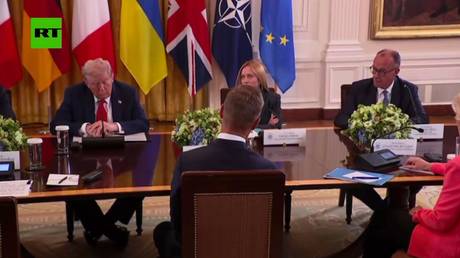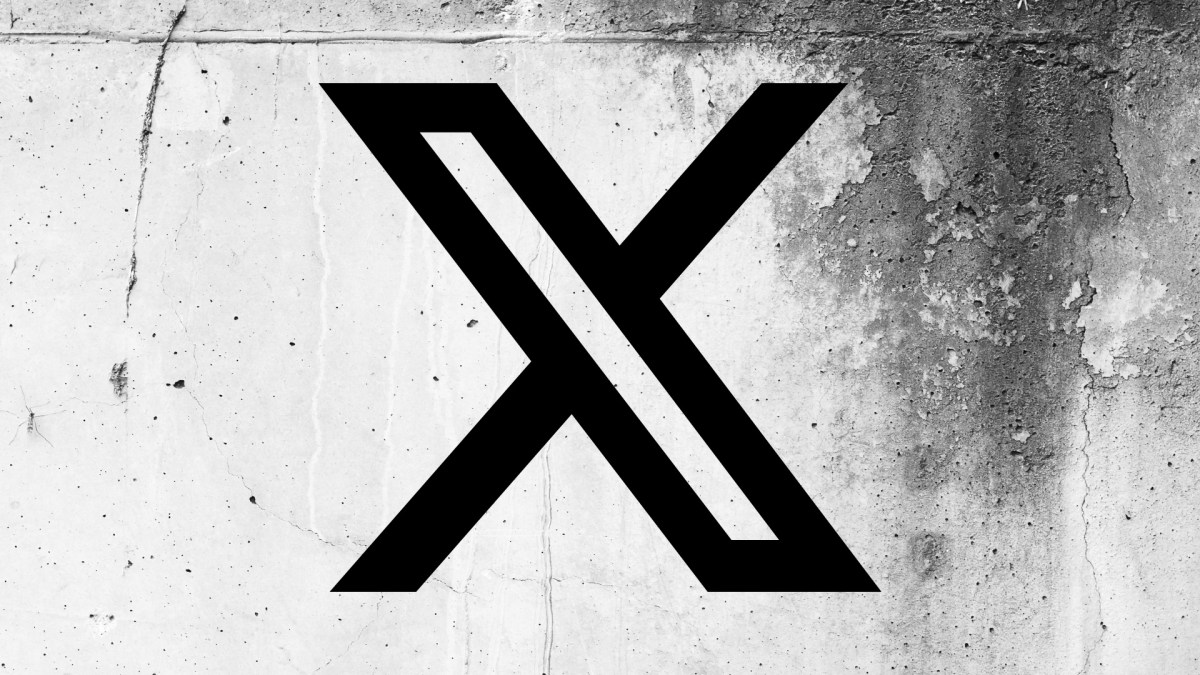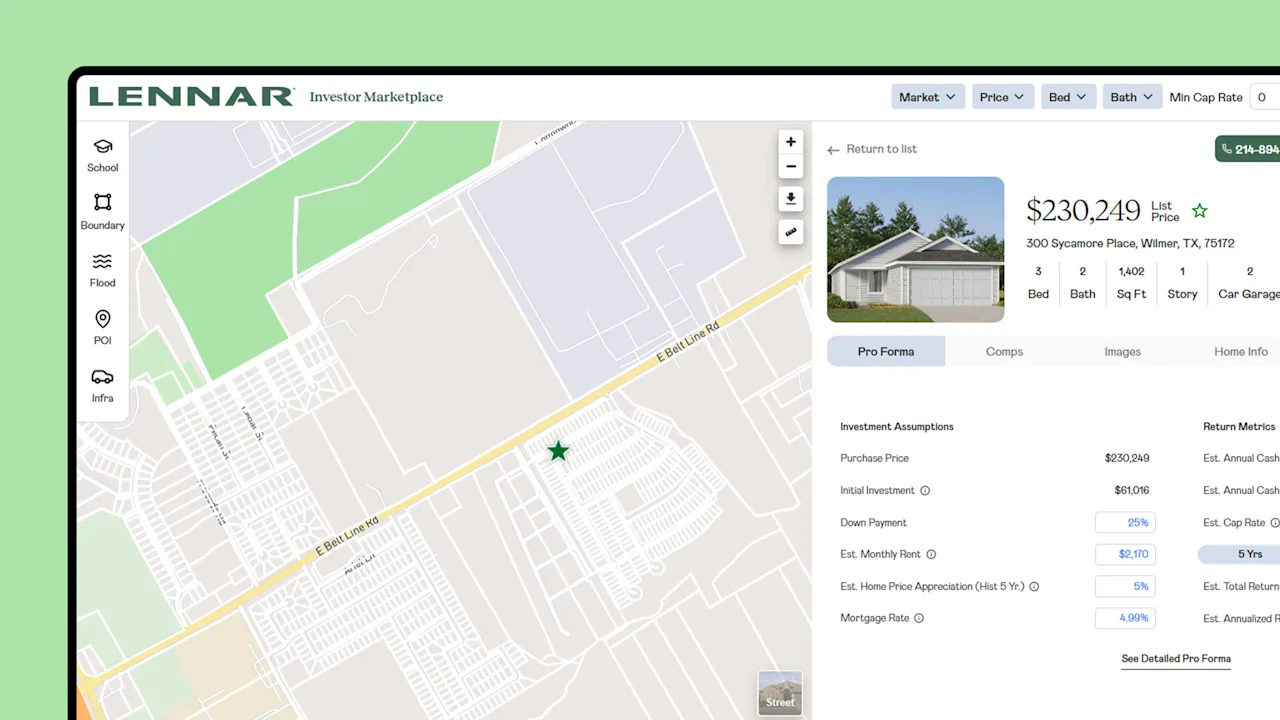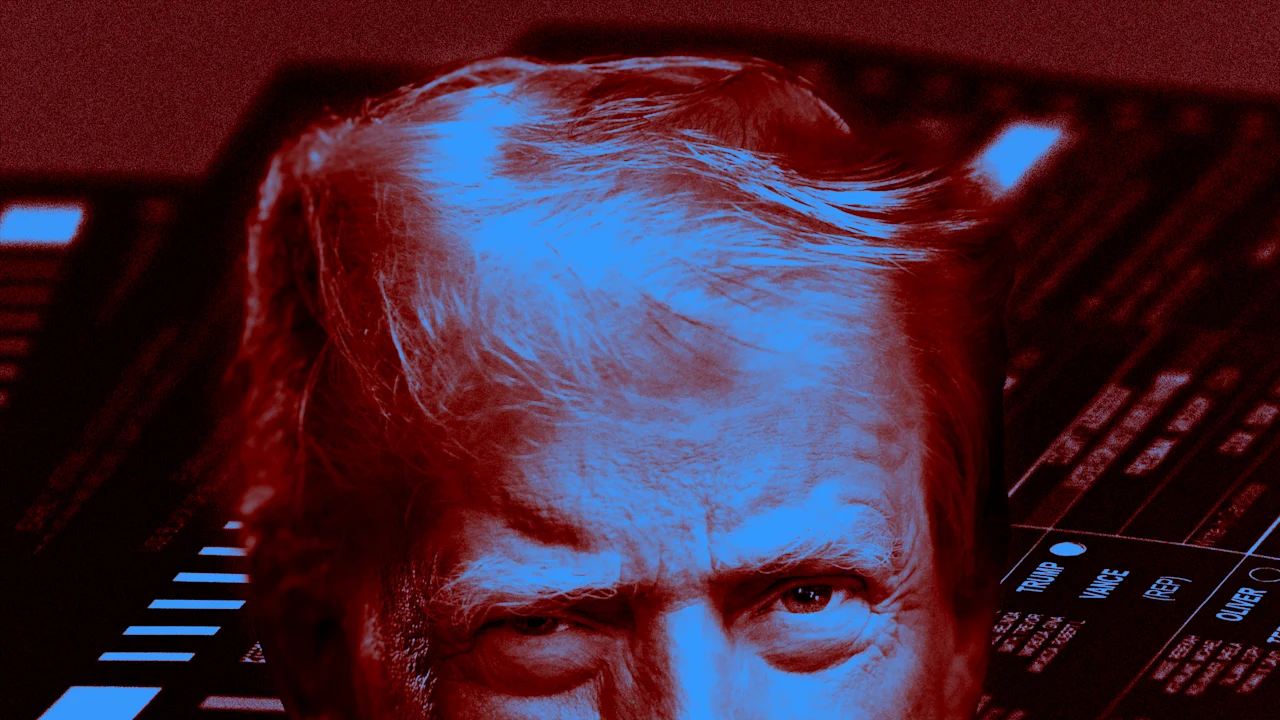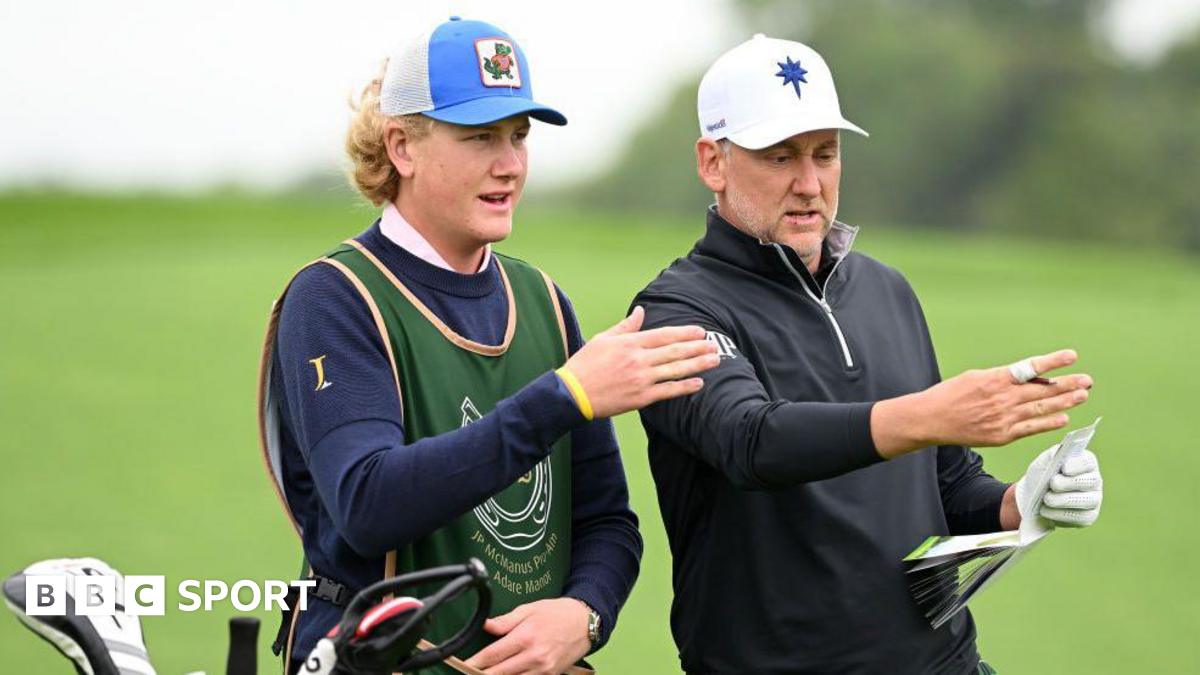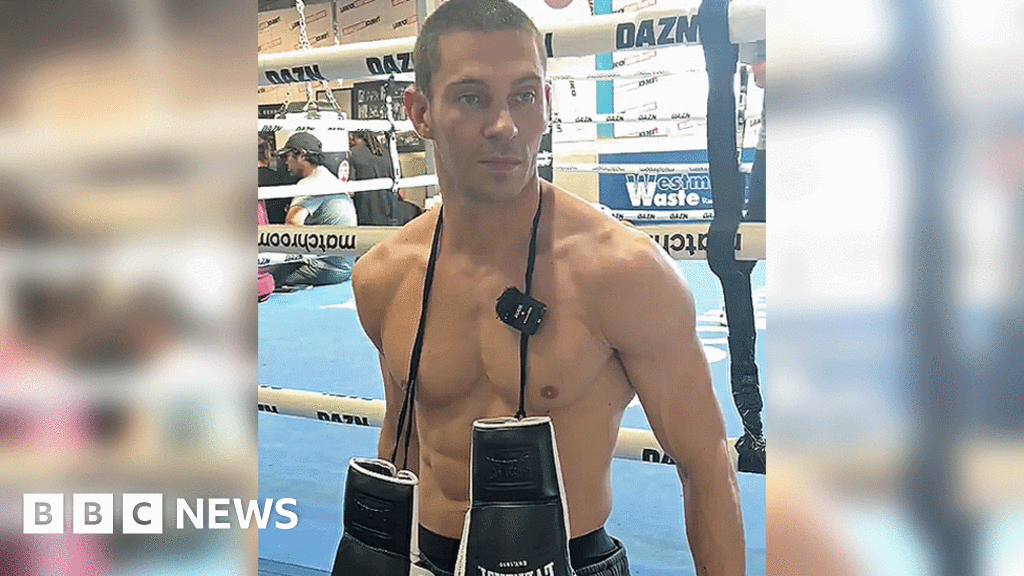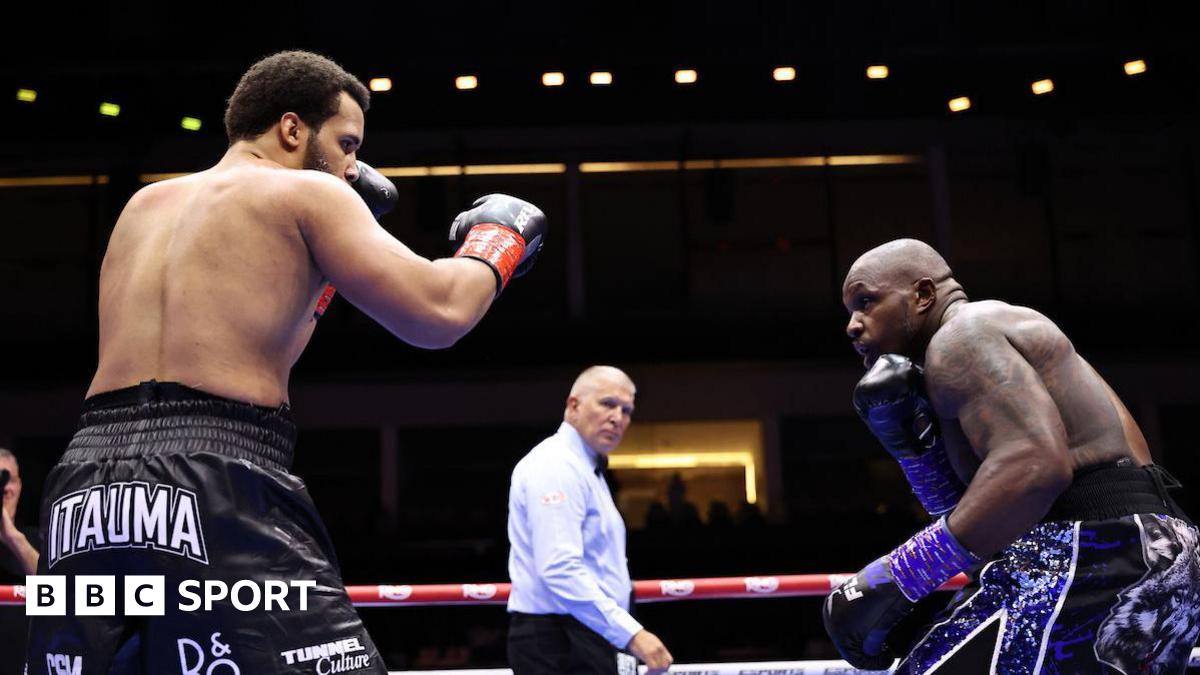Why David’s Bridal said ‘I do’ to AI
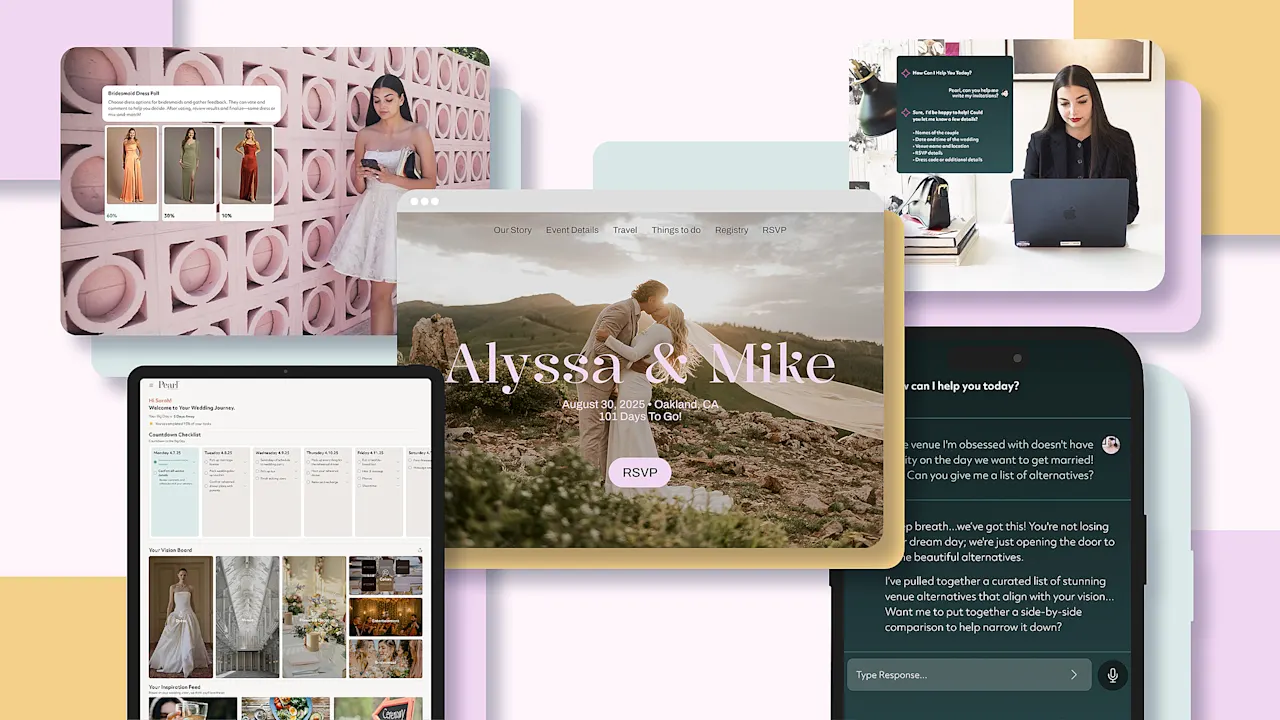
For 75 years, David’s Bridal has been the go-to dressmaker for America’s brides, selling a third of all wedding dresses in the country. But in a strange twist, the company wants to reinvent itself as something else entirely.
Next week, the retailer unveils its new identity as a technology platform for the $70 billion wedding industry. It begins with the rollout of Pearl Planner, an AI agent for couples planning their wedding. It provides checklists for each step of the process and connects users with vendors who pay David’s Bridal a commission for each sale. If this tool is successful, not only will it provide a compelling model to companies looking to monetize generative AI, but it would also be one of the biggest brand transformations in recent history.
Kelly Cook, who was promoted to David’s Bridal CEO in April 2025, describes this as an evolution from “aisle to algorithm.” For years, the company’s business was designing and manufacturing wedding dresses across a complex supply chain. Like other apparel businesses, it’s a model that involves risk, since the company needs to acquire inventory that may not sell. But Cook says the fundamental premise of the business is changing. “One of the core tenets that underpins our strategy is that we’re asset light,” she says. “We’re focused on AI first. This is how we’re making every single decision going forward.”
From Bankruptcy to Rebirth
This radical change comes after a turbulent period. David’s Bridal has filed for bankruptcy twice over the past seven years, first in 2018 and again in 2023, citing persistent operational and financial challenges.
Cook, who joined David’s Bridal in 2019 as CMO, identifies several reasons for the company’s struggles. It had failed to modernize its stores, which are crucial to selling dresses. And just as it was beginning to update its retail fleet, the pandemic hit. As people canceled weddings, the bridal market ground to a halt, and there were massive shipping delays that paralyzed the supply chain. “Then, when the stimulus checks stopped coming, people continued to postpone their weddings,” Cook says. “We had one thing after another, and so in 2023 we had to go back to bankruptcy court.”
Help arrived in July of that year, when Cion Investment Corp. bought David’s Bridal, reaching a deal to keep 195 stores open and enabling 7,000 of the company’s 10,000 employees to keep their jobs. It also injected $20 million of new funding. David’s Bridal’s executive team saw the acquisition as an opportunity to try something totally different. The board empowered Cook—a seasoned retail veteran—to bring the company into the 21st century.
Cook hired Elina Vilk, a Silicon Valley veteran who had worked at eBay, PayPal, and Facebook, to be the company’s chief business officer. And Vilk’s approach is to integrate technologists across every aspect of the business, including retail stores and highly specific departments, like alternations. “The secret is not to create a separate tech team that is a silo,” Vilk says. “To change the culture of the organization, you want to put people in different parts of the organization.”
An AI Wedding Planner
While David’s Bridal sells dresses, the company also has access to vast amounts of data. Cook says that 90% of all brides in America interact with David’s Bridal in some way, from visiting a retail store to browsing the company’s website. In the end, only a fraction of them end up purchasing a dress. “We serve the middle of the market, rather than couture or budget brides,” Cook says. “But the fact that nearly all brides were coming to us at some point was an extraordinary opportunity.”
Company executives determined that they could provide a useful service to the entire population of newly engaged couples by providing a free wedding planning tool that’s highly tailored to their needs. “When a woman gets engaged, she’s thrilled,” Cook says. “But then she spends the next 18 months in a perpetual state of anxiety. We can help her solve some of these problems.”
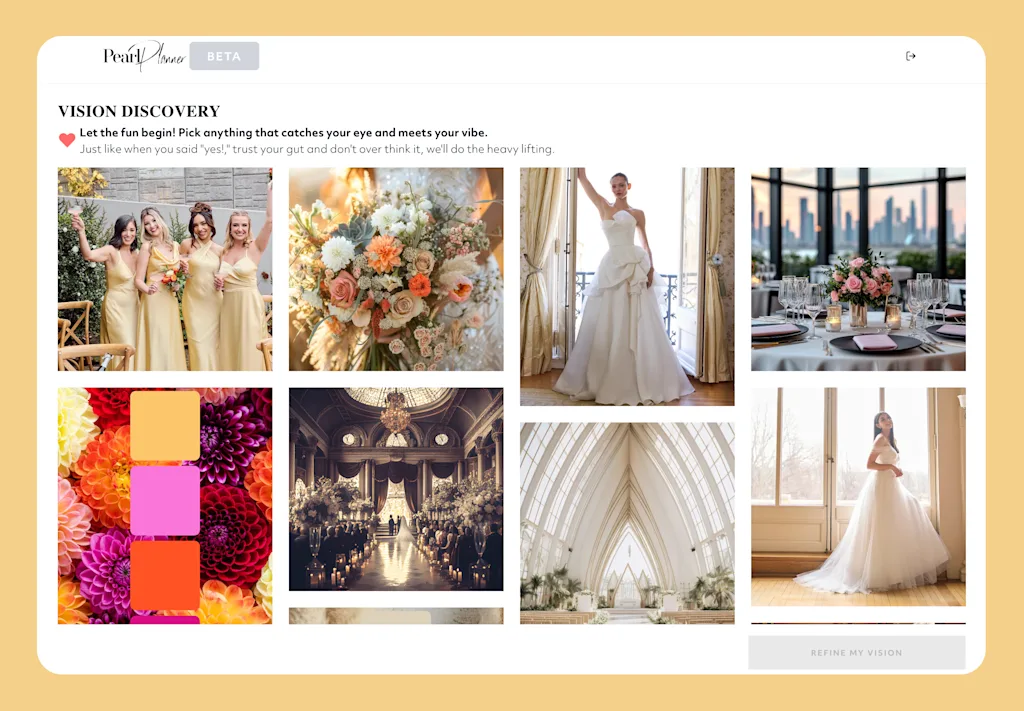
AI agents like ChatGPT or Claude can help with some aspects of the process. For instance, you might ask: “I just got engaged. What should I do next?” But these platforms are not well-versed in the details of wedding planning, nor will they connect customers with vendors they can use. David’s Bridal trained Pearl Planner, in part, on its own data about the specific steps that couples go through during the wedding planning process. The final product is a guided conversation with the AI agent that walks the user through each stage.
“To use ChatGPT, you need to know what questions to ask,” Vilk says. “The blank screen can be very anxiety-inducing. The difference with Pearl Planner is that it guides you through the process step-by-step.”
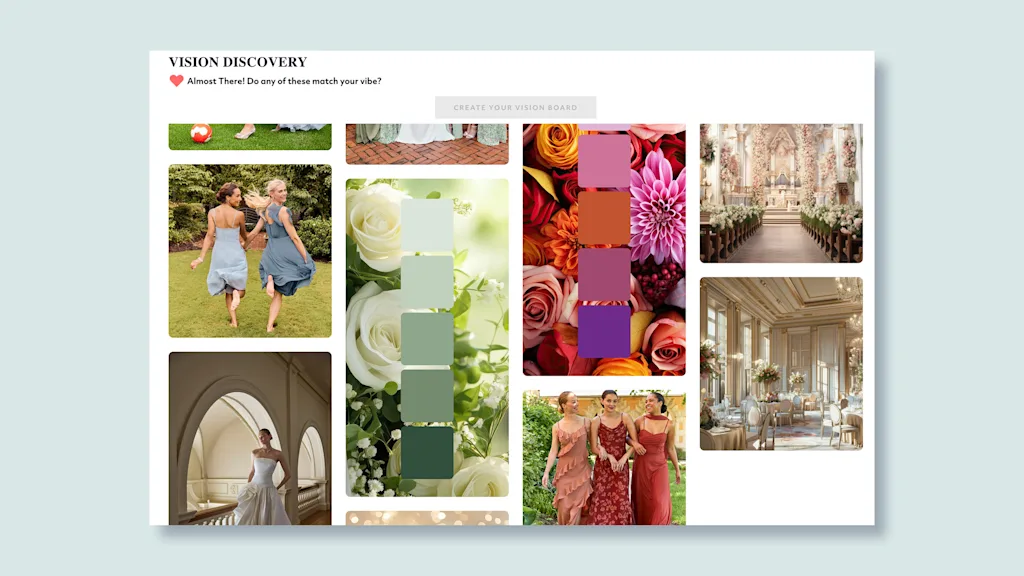
When you open the app, you answer questions about your wedding, including the date, size, aesthetic, and color palette. The app then creates a vision board, which you can tweak. Then you receive a checklist, personalized to your budget, style, and venue. It also explains when you need to accomplish each task. For instance, you’ll get notifications when you should send your save-the-date notices, or when you should begin researching florists.
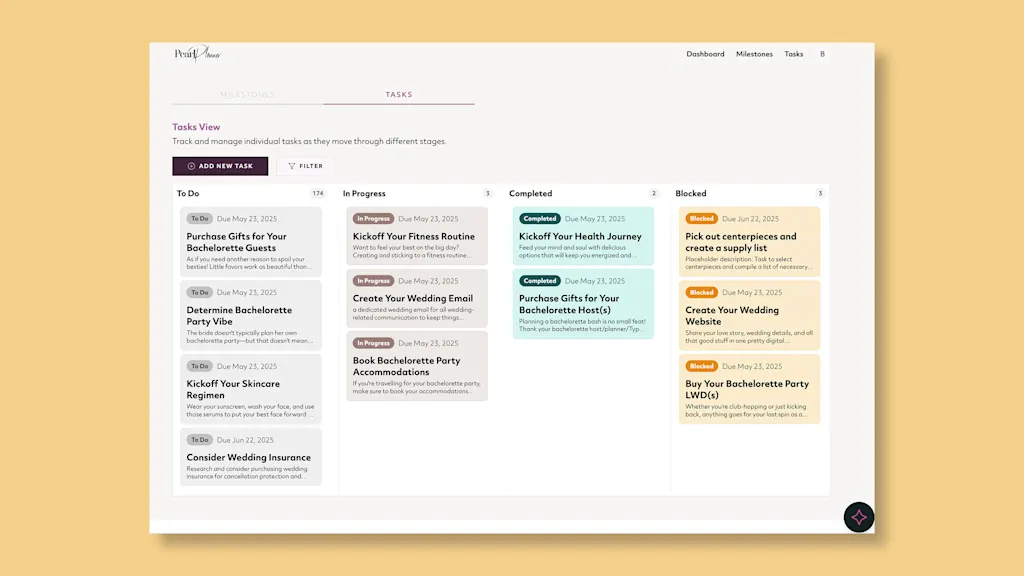
Also, as anyone who has planned a wedding knows, there are many things that can go wrong. The app tries to help with these problems. For instance, if you suddenly discover you need to add five more guests to the event, the Planner will automatically update your seating and catering checklists.
David’s Bridal gives the app to customers for free and offers a loyalty program that allows them to earn rewards for every dollar they spend through the app. (The highest award is a two-night, three-day honeymoon.)
Th app generates revenue in several ways. First, it directs users to its own product lines, which now include engagement party dresses, bridesmaid’s dresses, and resort wear for the honeymoon. It also introduces couples to vendors in their area and generates commission from each sale.
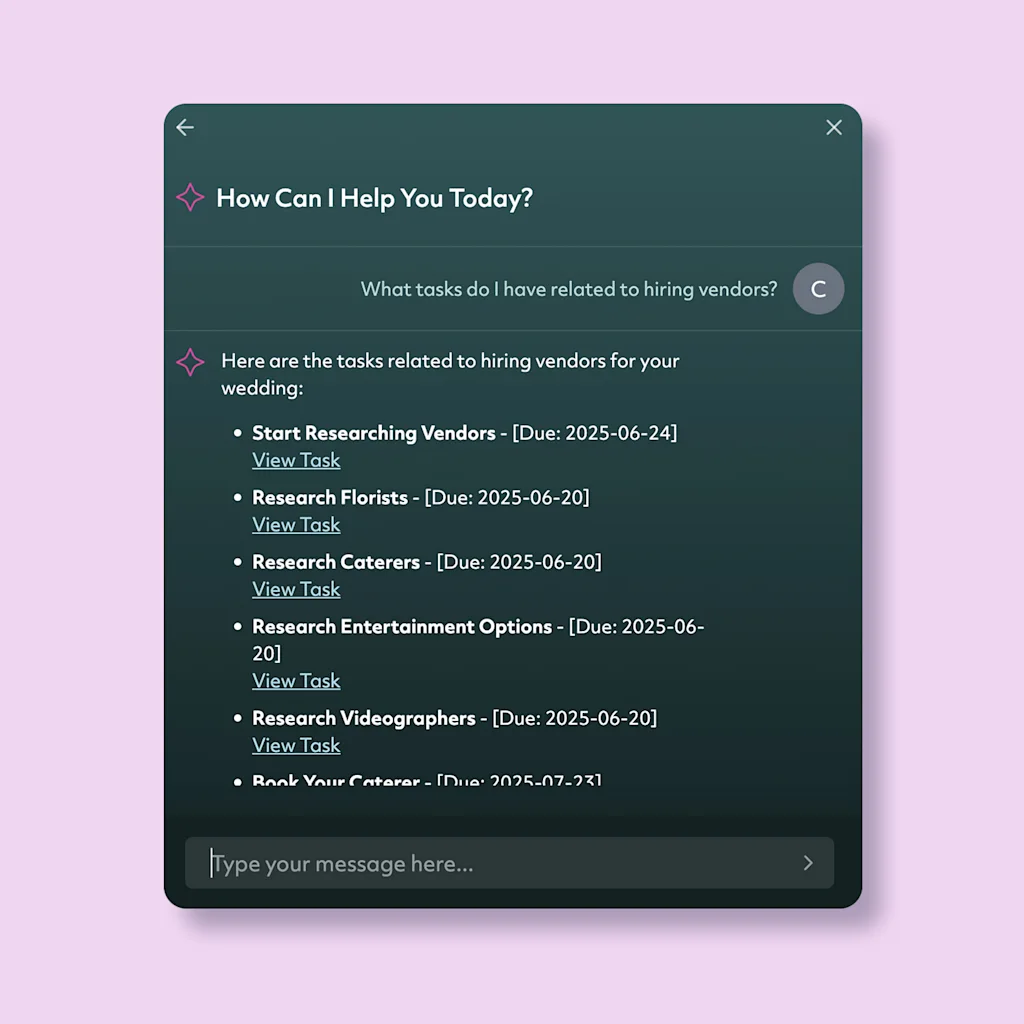
Pearl Planner essentially serves as a marketplace and advertising network for wedding vendors. “Since we capture a lot of first-party data about each user on Pearl Planner, it is so much more productive to advertise to our users,” Cook says. “Their ad spend is so much more productive, because they can target users based on very specific characteristics and introduce themselves to the couple the minute they need their service.”
Cook points out that the Pearl Planner completely transforms the company’s business model. Now other wedding dress brands are no longer competitors: They can advertise on the Pearl Planner app, and David’s Bridal will receive a commission if they book through the app. In fact, there might come a day when David’s Bridal lets other bridal shops white-label the technology.
“They could rename it for all we care,” Cook says. “When the brides go through the funnel, whether they buy the dress from us or not, all the monetization still stands. We benefit by serving the vendors that serve these brides.”
David’s Bridal’s effort to reinvent itself is a bold move, particularly for a 75-year-old company. There are other legacy retailers—including Walmart and Amazon—who are incorporating AI into their core business with agents that help merchants decide what products to bring into the assortment or help them manage store inventory. David’s Bridal stands out because it is using AI to evolve into an entirely different kind of company, with new revenue streams.
It’s unclear yet exactly how well this transformation will work. But Cook models the kind of ambition required to revive a struggling business and make it relevant in the AI age. “At some point, we might not even just be a bridal company,” she says. “You can use this same technology to plan any of life’s events, from quinceañeras to bat mitzvahs to baby showers.”
What's Your Reaction?
 Like
0
Like
0
 Dislike
0
Dislike
0
 Love
0
Love
0
 Funny
0
Funny
0
 Angry
0
Angry
0
 Sad
0
Sad
0
 Wow
0
Wow
0





